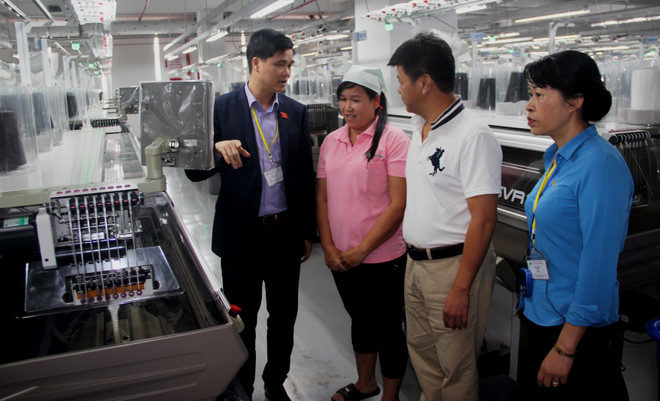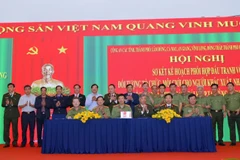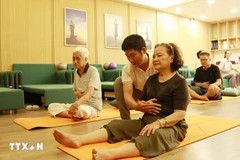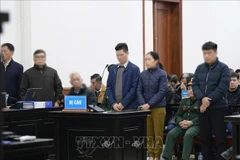 Representatives of the Vietnam General Confederation of Labour visit the workplace at the factory of the First Team Vietnam Garment Co. Ltd in Tay Ninh province (Photo: VNA)
Representatives of the Vietnam General Confederation of Labour visit the workplace at the factory of the First Team Vietnam Garment Co. Ltd in Tay Ninh province (Photo: VNA) Tay Ninh (VNA) – The Vietnam GeneralConfederation of Labour and the CARE International organisation have surveyedthe gender equality situation at businesses in economic zones of Tay Ninh, a provincein the southern key economic region.
The survey aimed to improve workers’ awarenessof gender equality. It was also part of activities to prepare for the amendmentof the 2012 Labour Code so that legal regulations could better ensure equalpay, equal job opportunities, equal sharing of family responsibilities, andprevention of sexual harassment at the workplace.
Wong Ting Chun, Chairman of the First TeamVietnam Garment Co. Ltd in Thanh Thanh Cong Industrial Park in Trang Bangdistrict, reported that his business is employing about 8,000 workers, over 80percent of whom are women with an average income of 7 – 9 million VND (300 –390 USD) per month. The female workers’ average monthly income is about 1million VND higher than their male colleagues’ since they are in charge of thesteps that need more skills.
He said the draft revisions on priorities forfemale workers, especially those with small children, to the Labour Code arereasonable. Although these regulations haven’t been enforced, his company has appliedappropriate support policies for pregnant women and those with small children.
A 19-year-old worker at the company said she hasreceived good treatment since she began working in the company in 2016. Sheadded workers should be allowed to decide on their overtime hours, depending ontheir family and health condition, because overtime pay is necessary for themto better support their lives.
During the fact-finding tour on December 29,Vice President of the general confederation Ngo Duy Hieu said ensuringworkplace gender equality is one of the important solutions to protectlabourers’ rights and legitimate interests.
He noted female workers need to know regulationson the retirement age, prevention of workplace sexual harassment, equality ofjob opportunities, and equal pay for equal work between men and women, so thatthey can protect their rights and interests. –VNA





























